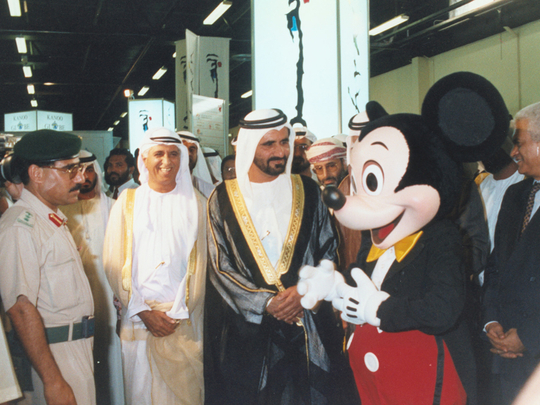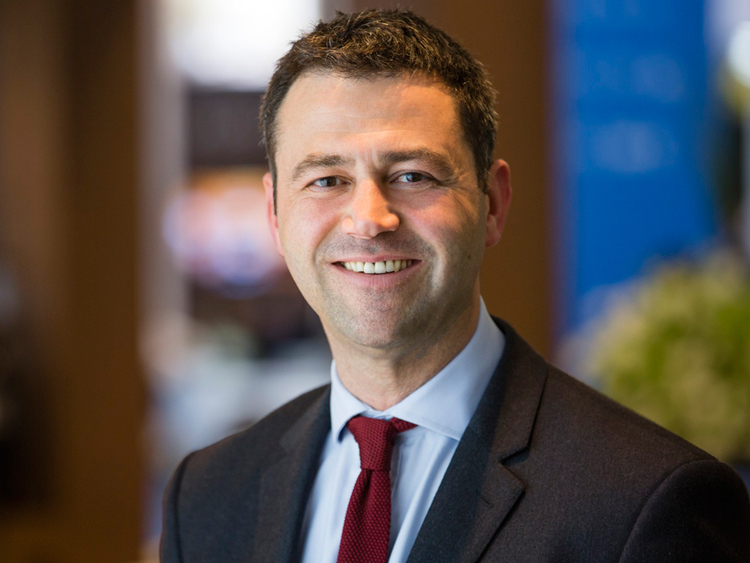
Arabian Travel Market (ATM) opened its doors for the first time in Dubai in 1994, covering just 2,000 sq m of space and attracting 7,000 visitors. It has now grown to cover more than 26,000 sq m, attracting over 40,000 travel professionals including Buyers’ Club members, CEOs and senior executives.
Showcasing more than 2,500 exhibitors and brokering deals worth $2.5 billion (Dh9.18 billion), ATM 2017 was the largest edition in its history. It has experienced growth of over 70 per cent since 2012 and this year looks like it’s going to break more records. GN Focus emailed with ATM’s Senior Exhibition Director, Simon Press, to learn more.
What are the key changes that the industry has seen over the past 25 years?
The GCC tourism industry has grown more than tenfold since we first opened our doors. Today we have the tallest buildings and tallest hotels, revolutionary transport infrastructure, and theme parks and leisure attractions that are the envy of the rest of the world. ATM will reflect on this success, while exploring how the industry will shape up over the next 25 years, in light of economic uncertainties, technological advances and the trend of responsible tourism.
What’s the outlook going forward? Obviously there's Expo 2020...
Expo 2020 is driving growth in Dubai as the emirate aims to complete 160,000 hotel rooms in time to welcome an additional five million visitors during the event. However, GCC nations as a whole see tourism as a way of diversifying their economies away from hydrocarbon receipts. Despite the economic benefits, growth often comes at a price and, in the resource-intensive hospitality and tourism sectors, the environmental impact is multidimensional, from carbon emissions, water and energy demand, to food waste, noise and light pollution.
Through retrofits, operational changes and automation, it is possible to reduce our environmental impact, which is crucial when we consider tourism’s current growth trajectory. By 2030, 1.8 billion people will travel internationally each year. So, between now and 2030, we face many unprecedented challenges, both economic and environmental. At ATM 2018, we will demonstrate how, with the correct strategy in place, together we can expand the tourism industry responsibly.
What are you excited about ATM 2018?
ATM 2018 will showcase the largest exhibition ever, with hotels comprising 20 per cent of the show area. This year we have over 400 main stand holders and expect more than 2,500 exhibiting companies — of these, 100 will be new. We’ll debut the ATM student conference, Career in Travel, a programme aimed at tomorrow’s travel professionals and hoteliers. The inaugural Destination Investment panel this year will discuss what drives investment in travel destinations across the Middle East and neighbouring regions.
From space to virtual reality, travel reality is edging closer to science fiction. What will be the regional impact?
How we travel is set to rapidly evolve over the next few years as technological advances bring new modes of transport and in-flight and airport experiences to market. Cities such as Dubai are taking the lead and rolling out several exciting initiatives. From Hyperloop train systems and autonomous vehicles to smart airport strategies and in-flight innovations, the travel experiences of the future will be far from dull.
A panel on the Hyperloop and future travel experiences will kick off proceedings at ATM’s Global Stage in a session joined by Sir Tim Clark, President, Emirates Airline, Issam Kazim, CEO, Dubai Corporation for Tourism and Commerce Marketing (DCTCM), and Harj Dhaliwal, Managing Director Middle East and India Operations, Hyperloop One.
And how is tech changing the sector?
The GCC has placed innovation and technology at the heart of its strategy to build a knowledge economy, attracting some of the world’s revolutionary thinkers to develop and launch solutions here. In hospitality, the market has adopted and pioneered many of these, from remote check-in to enhanced security features, guest recognition services, BYOC and BYOD, to name a few. Cloud passports, virtual reality and apps are some trends predicted to reshape consumer habits and marketing strategies, along with an evolution in job functions.








